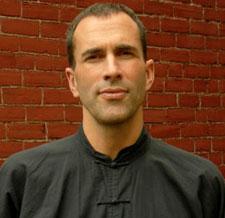This year’s Toronto International Film Festival (TIFF) was mired in controversy two weeks before it even began in a dispute that may get worse. Gay Toronto-based filmmaker John Greyson has pulled his documentary Covered in protest against the festival’s City to City showcase on Tel Aviv. In screening what Greyson and some of his colleagues charge is an uncritical celebration of Israel just eight months after the Gaza bombardment, Greyson argued in a written statement that, “TIFF has emphatically taken sides — and in the process, forced every filmmaker and audience member who opposes the occupation to cross a type of picket line.”
Greyson, who is filming in South Africa this month and couldn’t be reached for interview, is joined in his protest by queer filmmakers Elle Flanders and Richard Fung, who have both been involved with TIFF in past years. The three met with festival codirector Cameron Bailey last month to discuss their concerns when they learned that the Israeli consul general Amir Gissin was billing the Tel Aviv spotlight as the “culmination” of the government’s year-long Brand Israel campaign, a $4-million campaign to promote Israel’s scientific and cultural achievements, directing focus away from its treatment of Palestinians.
Greyson and his colleagues suggest that either the festival’s directors were ignorant of the message the Tel Aviv spotlight would send, or they deliberately programmed something they knew the Israeli consulate planned to use as part of its PR campaign.
“I have one concern and that is that they worked very hard to keep the Palestinian narrative out of the program,” says Flanders, “and if that’s not the case then it’s not something they should be flaunting because it just displays ignorance. It was a dumb, dumb choice, unless there are political motives.”
Bailey denies any such political motives. “The series was curated independently,” says Bailey. “One of the foundations of what we do [at TIFF] is curatorial independence.
“I’ve heard some comments that [the series] was influenced by some Israeli propaganda machine, and that’s just not true.”
Bailey, who conceived of the City to City series and curated its inaugural Tel Aviv spotlight with Kate Lawrie Van de Ven, also denies that the films selected are uncritical. “The real unfortunate thing,” he says, “is that people calling for a boycott haven’t yet had a chance to see these 10 films. Within the series there is a real variety of viewpoints — many are critical of their government’s policies.”
Flanders insists, however, that this is not the case. “I for one have seen four out of the 10 [films], so I am well familiar with the content. I’ve read the program and the program notes, and I deeply object to it…. There is not one critical film in there. It’s just false,” she says.
“John is right that there are no Palestinian filmmakers in the series,” says Bailey. “If you want to see Palestinian filmmakers then you have to look elsewhere in the festival, such as Scandar Copti with Ajave. And then there’s probably the leading Palestinian filmmaker Elia Suleiman with The Time that Remains.
“I saw the series as part of a larger debate within the entire festival.”
Flanders stresses that while she and Greyson and their colleagues are encouraging other filmmakers to withdraw their own films from TIFF, they are not calling for a boycott of individual Israeli films.
“My protest is against the spotlight itself,” Greyson stated, “and the smug business-as-usual aura it promotes of a ‘vibrant metropolis [and] dynamic young city… commemorating its centennial,’ seemingly untroubled by other anniversaries, such as the 42nd anniversary of the occupation.”
Flanders suggests though that she and the others involved in this dispute might support an economic and cultural boycott against Israel in the future.
“[Boycotts] changed the whole South African antiapartheid movement,” she says. “It just shifted the whole dialogue…. the movement in relation to South Africa really worked in raising awareness and consciousness, and they couldn’t hide anymore.”
Greyson’s statement makes no specific accusations with regard to TIFF’s motivations in choosing Tel Aviv for the spotlight, but it does allude to a possible financial incentive. Greyson points out that Astral Media, sponsors of Brand Israel, are also “a longtime TIFF sponsor” and that Canwest, whose parent company donated $500,000 to TIFF, is also among the Brand Israel donors.
Bailey has posted his own statement on the TIFF website (Tiff.net), which Flanders calls “deeply inefficient.” She says she is not hopeful of a resolution before the festival opens Thu, Sep 10. Greyson’s statement and his film Covered can be seen at Vimeo.com/6308870.

 Why you can trust Xtra
Why you can trust Xtra


